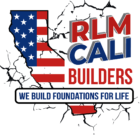Why did my tile crack?
We understand. You’re on a mission to find out what caused the tile in your kitchen, bathroom, or laundry room to break. You want to know the precise cause of the cracks in your beautiful tile. There are many potential reasons for this, from sloppy tile work to dropped ACME safes, so this is a great question. Unfortunately, tile cracks are always a symptom and never the actual problem. It’s also important to note that the severity of underlying problems varies widely.
Reasons Your Tile May Have Cracked
Many homeowners, like yourself, worry that tile cracks are a sign of a major, expensive, and structurally compromising issue. A broken tile need not always keep you up at night worrying. Here is a quick rundown of types of cracks that are harmless and won’t cause major damage to your home’s structure (but are still nevertheless a nuisance).
Tiles break when subjected to heavy loads.
Extreme and prolonged pressure from objects like refrigerators, washing machines, and dryers can crack your tile. Only when low-quality tiles are used will this occur. Fitting the tile to the space and purpose for which it will be used is of the utmost importance. Your clothes dryer, for one, would topple over if placed on a floor made of wall tiles.
Unprofessional work leads to tiles that break easily.
It’s crucial to lay tiles properly so that they’re level, snug, and won’t come loose. If your kitchen, bathroom, and laundry room tiles are poorly installed, you may soon notice cracks. Inadequate adhesive application across the entire tile (resulting in an uneven position) is a common example of a shoddy tile installation, as it leaves spaces under the tile that weaken the porcelain or ceramic.
Sometimes the wrong kind of mud or glue is used, or there isn’t enough of it. For example, a mud/adhesive mixture that dries rock solid is too rigid to be used. Tiles can break if there isn’t just enough wiggle room between them.
Tiles break after a heavy impact.
A tiled floor is likely to break if something heavy is dropped on it. If there were issues with the installation, such as not enough adhesive or the wrong kind of adhesive, the tile is more likely to crack. It’s likely that your kids or spouse dropped a heavy object onto the tile, so if you find a new crack, don’t be alarmed.
Foundation Cracks and Heaving Lead to Settlement and Cracking Tiles with Chips
Both foundation settlement and heave can be traced back to the same underlying cause: soil expansion. The water table has a direct effect on the expansion and contraction of expansive soils like clays and loams. Simply put, soil volume increases with increased water and decreases with decreased water.
These cyclical changes in volume place extreme stress on your building’s framework. As a result, your foundation may settle, which is a serious structural problem. In other cases, it can cause your foundation to bulge. Tiles will crack as the pressure rises through the foundation and into the framing of your home.
Schedule That Inspection, Already, and Relax
You learned that poor installation, impact, and excessively heavy loads are all benign causes of tile cracks in this article. More serious problems, such as tile cracking and structural damage, can be caused by foundation heave and settlement, which you also learned about.
Thousands of foundations have benefited from RLM Retrofit’s services. If you notice tile cracks, we can perform a free Foundation Inspection Big Bear to determine if your home is experiencing foundation settlement or foundation heave.










